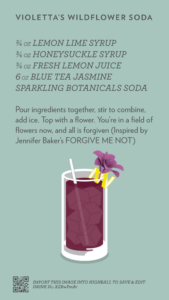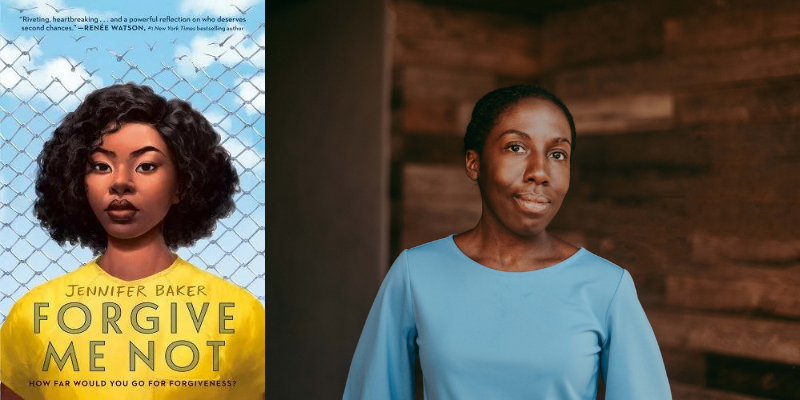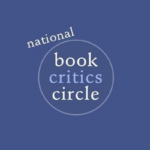Jennifer Baker on Hoping Her Book Will Help Teens
In Conversation with Christopher Hermelin on So Many Damn Books
Jennifer Baker steps into the physical reality of the Damn Library and thankfully brings along her infectious laugh and passion for books. We chat all about the long road of writing her new novel Forgive Me Not, her hopes for how it’s received, and how curiosity drives her fiction while anger can drive her nonfiction. Plus, she brought along Akwaeke Emezi’s incredible Pet. A perfect visit!
Subscribe and download the episode, wherever you get your podcasts!
*
What’d you buy?
Jennifer: Creep by Myriam Gurba // I’m from by Gary R. Gray Jr, Oge Mora
Christopher: Strange Houses by Cora Jarrett // Fifty Beasts to Break Your Heart by GennaRose Nethercott
*
Recommendations:
Jennifer: Boyfriend Material by Alexis Hall
Christopher: Time’s Mouth by Edan Lepucki
*
From the episode:
Christopher Hermelin: At the base of this book, there’s this tension between the idea of restorative justice that’s put up against like bureaucracy and government. Can government administer restorative justice? And it seems like you have an answer to that in your mind as you’re reading this, that the answer is like, “No, no, they can’t do it.” But that conflict seems like it’s simmering at the bottom of this. Is that simmering all the time for you as you’re in your life?
Jennifer Baker: I mean, more so now, especially as I’ve read more about abolition and stuff like that. So, I mean, when I started the book, I will be very frank that it was really the idea of what would things look like if victims were able to make a choice in this, and what dos forgiveness look like? Those were the two big questions for me as a novelist or what have you. And then it was the characters. But also understanding I wanted this book to be different because in young adult novels thus far, it’s not all of them, but thus far there’s a discussion about criminal justice that really isolates to the person. And so we’re kind of looking at the system. But kind of not, because people are so focused on the individual. And so you’re not always understanding how the system works. I think Monster is one of the ones that is a bit different. Or Kim Johnson’s Invisible Sun that came out earlier this summer. She talks a little bit about it, because you see the consequences for a kid who’s been accused of something that he didn’t do. So he has la kind of shackle to an extent, the monitor, the leg monitor. And so you you see that.
And at the same time, it’s just like, well, the system sucks and this person’s innocent, but I don’t want to explore innocence or guilt. I wanted to explore how we treat people when they have been put in this situation. From there you have to think about how did the system work in a real way.
CH: And she feels guilty.
JB: Yeah. Like she admitted it. She’s like, I did this. Absolutely. And to the extent some of the other women around her, they did. But all their circumstances are different, right? Like Serena, Petra, everyone’s circumstance is different and it’s not even heard what happened. Like none of them are saying, well… Eve is, right? She’s like, “Whatever. All I did was this. That’s what they said. I did. But the rest of them are like, “No, I did it. But there was a reason for what happened.”
But no one’s listening or cares about the reason. And, well, what do you do then? Then when you have Vince’s perspective, you see how the family’s being manipulated. Like, this is a fact of the system, right? We have great data. The stats are good. I can tell you, this is great. You know that, like mechanical kind of Politic.
CH: Yeah, And you made that into a character. There’s a very frustrating random guy who’s just there to administer his job.
JB: Yeah. There to do his job. And so you see that in a different way and you’re not just like, “oh, this kid is innocent.” So then the focus becomes their innocence. But are they thinking about how the system in its entirety works? Or in this instance, the system doesn’t work? Whereas in my book, the more I stuck with it and the more I was asking more questions, you unravel a lot more. We need to question the system. But I have to show you how it works and I have to show you how culpable people are to believe.
CH: Yes.
JB: And they still have to put people in enclosures. Yeah. You still have to label them in some way. They have to be marked and branded, like she is when she goes through one of her trials. And she notes, “It’s like I am branded basically.” You’re not changing. They’re like, we changed the system and they’re like, no you didn’t. Right? They’re saying their system is less racist, it’s more cost effective. Isn’t it great? And it’s like, “No, it’s actually not. But we’ve gone with it because you told us this was good and it didn’t affect me until it did.” That’s how I feel like we are. I include myself in that. We’re all like, okay, well, this is how it is. And we do have our frustrations and we do what we can. And at the same time, there’s a big aspect of like, well, we kind of go along with it because we’re just trying to survive every day. That’s a very human thing.
CH: What are you hoping for the teens to take away? Have you thought about that as teens have the book in their hands?
JB: Yeah, hopefully! Schools in, so yeah!
CH: There’s a reader’s guide!
JB: Yes let’s drop the educator’s guide! I want them to know they have agency and they have power. That was the biggest thing for me, that’s why it’s teens, because I was like, I know that I can give them something to fight for in themselves in the midst of everybody making these decisions for them, and thinking they know best and and all that.
I would love for them to question the systems in place, and I don’t know if this would radicalize them, but I want them to question the system and be critical of things that are in place. But also I want them to be like, “Wow, you know, even though she’s detained, she has power and she can make a choice for herself.” What that choice results in is what it results in. But she can make a choice.
CH: I mean, you feel for her this whole time, and that’s something that you’re so close to her. You really feel her guilt coming up against her annoyance at this system that goes beyond annoyance. Annoyance is a very polite way of putting it, but that’s where it starts, right?
JB: Annoyance and confusion.
CH: Yeah. She’s ready to do the work.She does think, like, maybe this will help me.
JB: Mm hmm.
CH: But…
JB: But. Dot dot dot.
*





















